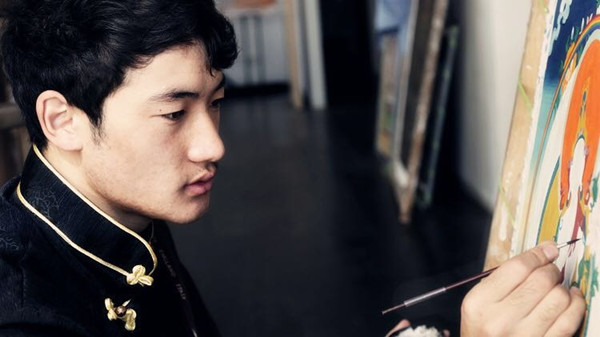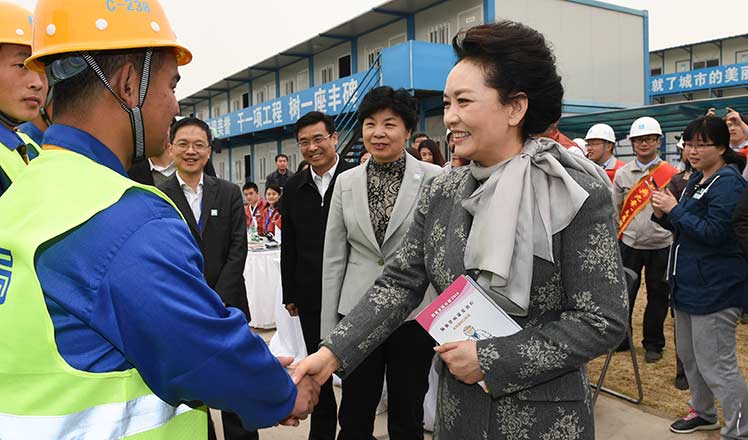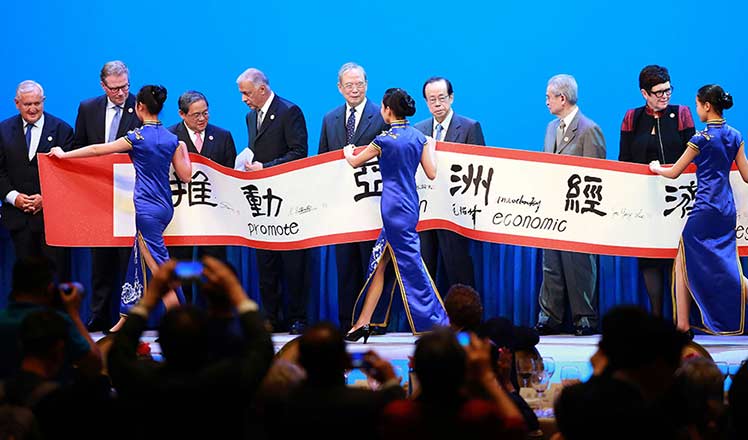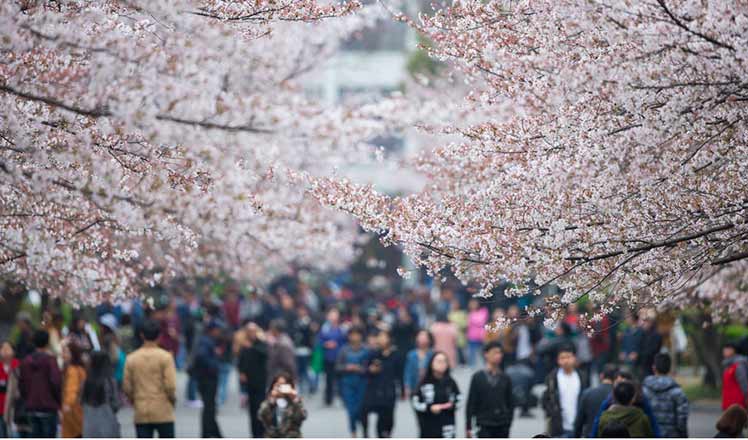Dying heritage gets a new lifeline online
Updated: 2016-03-25 08:05
By Wang Kaihao(China Daily)
|
||||||||
 |
|
Young artist Sonam Dawa paints a thangka piece.[Photo provided to China Daily] |
Thangka art, a traditional Buddhist painting form on cotton or silk done by Tibetans, is now being conserved in the virtual world.
A digital project by Baidu Baike, China's largest Web-based encyclopedia, went online earlier this month, aiming to protect this craftsmanship, which was designated as a national intangible cultural heritage form in 2006.
The 30-odd pieces of thangka works that have been digitally conserved include a gigapixel image of White Tara, depicting a Buddhist goddess.
The White Tara piece online comprises more than 100 high-definition photos to make sure each detail can be clearly seen.
"Digitization is necessary to preserve thangka art on scrolls, as slight abrasion is inevitable each time you unroll the pieces," says Liang Jing, 35, a collector and exhibition curator, who owns the original art.
"Also, as the paintings are not covered, the dust in the atmosphere affects them. Digitization, however, can capture the art perfectly and it is easier for the younger generation to experience it," she says.
Baidu Baike launched its intangible cultural heritage protection database in November 2015, to attract wider public attention to the heritage and to preserve it.
The nonprofit program is using multimedia channels to make a record of traditional lifestyles that are gradually fading away.
According to Jin Xiaping, the supervisor of the project, about 1,000 examples of intangible cultural heritage have been included in the project to make the encyclopedia more extensive.
For instance, for the entry on "shadow play", the website worked with artisans to shoot panoramic videos.
The website plans to highlight one example of intangible cultural heritage each month, and thangka is in focus for March.
Liang says many reputed institutions will soon be made part of the project to ensure the accuracy of the material preserved.
Besides preserving the traditional heritage, Liang says "traditional art forms must also catch up with the times we live in.
"Thangka, for example, is no longer only about religious themes. So it is only through innovation that it can be better promoted today.
- Pentagon chief says Europe needs to accelerate anti-IS efforts
- Jeb Bush endorses Cruz's election bid
- Chinese passenger may sue Virgin Atlantic
- People pay condolence to victims of Brussels attacks
- Police issue wanted notice for suspect after Brussels attacks
- China eyes cooperation plan for Lancang-Mekong countries

 First lady Peng Liyuan leads fight against tuberculosis
First lady Peng Liyuan leads fight against tuberculosis
 Faces at Boao Forum for Asia Annual Conference
Faces at Boao Forum for Asia Annual Conference
 In photos: Lunar eclipses visible in eastern China
In photos: Lunar eclipses visible in eastern China
 Chinese chasing Spring blossoms around the country
Chinese chasing Spring blossoms around the country
 Migrant couple returns to hometown to raise chickens
Migrant couple returns to hometown to raise chickens
 Victims of Brussels attacks commemorated
Victims of Brussels attacks commemorated
 In photos: Brussels rocked by multiple explosions
In photos: Brussels rocked by multiple explosions
 Raul Castro and Obama hold talks in Havana
Raul Castro and Obama hold talks in Havana
Most Viewed
Editor's Picks

|

|

|

|

|

|
Today's Top News
Marriott unlikely to top Anbang offer for Starwood: Observers
Chinese biopharma debuts on Nasdaq
What ends Jeb Bush's White House hopes
Investigation for Nicolas's campaign
Will US-ASEAN meeting be good for region?
Accentuate the positive in Sino-US relations
Dangerous games on peninsula will have no winner
National Art Museum showing 400 puppets in new exhibition
US Weekly

|

|







